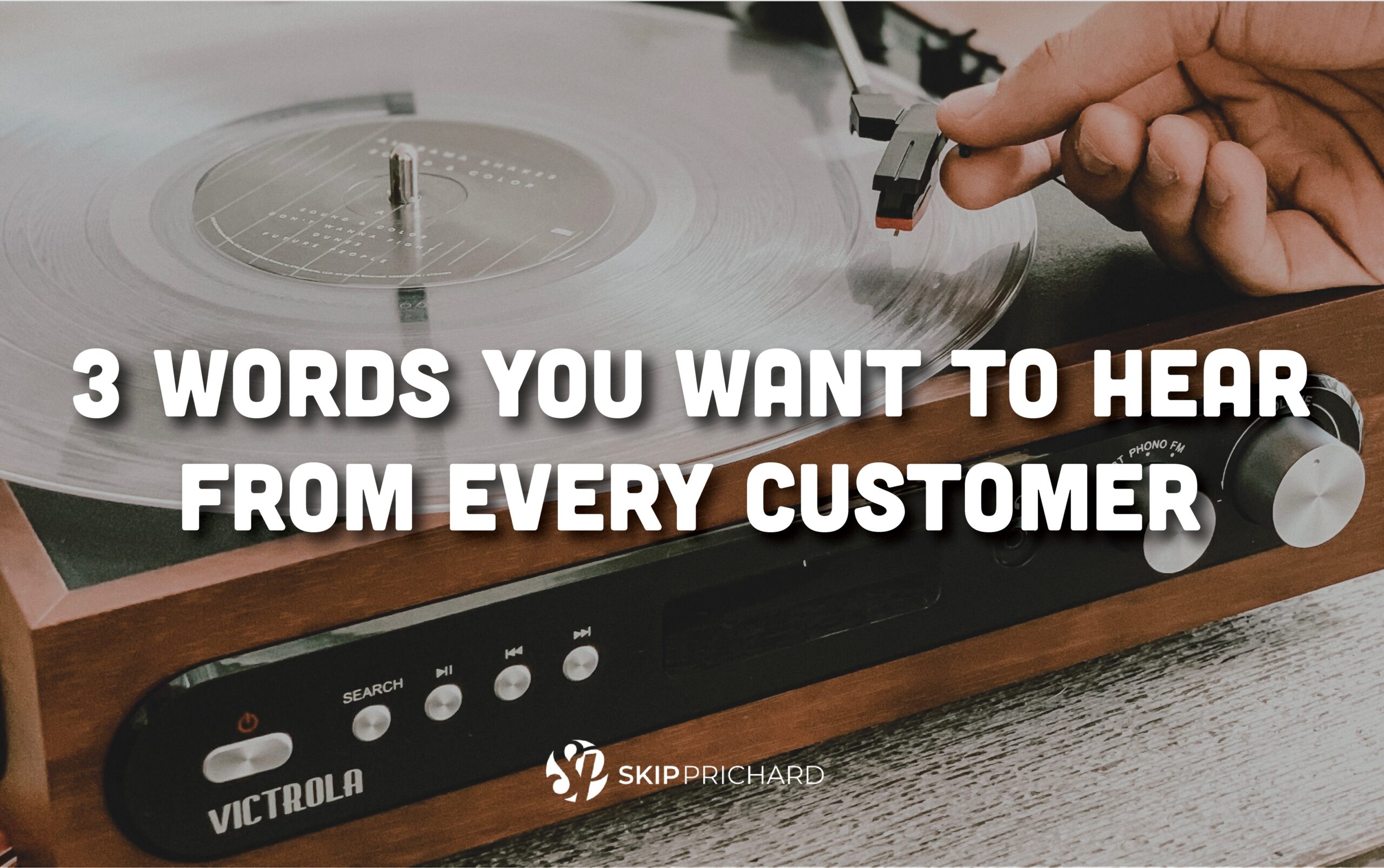3 Golden Words
There are three words that are golden. They signal that you have achieved something special as an organization.
Shep Hyken’s new book, I’ll Be Back: How to Get Customers to Come Back Again and Again, is a guide for creating memorable customer experiences that will help your business thrive in any economy. Shep is a renowned customer service and experience expert, a world class speaker, and a New York Times bestselling author.
The three words that you want every customer to say?
“I’ll Be Back.”
I caught up with my friend, and fellow Speakers Roundtable member, Shep so we could share a few highlights with you.
Getting customers to return repeatedly sounds like a great plan everyone would agree to, but actually making it happen seems difficult. What are some of the reasons companies fail to attract repeat customers?
It’s much easier to keep an existing customer than to keep trying to attract new ones. Still, you need both to grow. The main reasons customers stop doing business with a company have to do with the customer service and experience. Our research shows that 83% of customers are willing to switch brands because of bad service. Customers are getting smarter and know what a good experience looks like. They no longer compare you to direct competitors, but to the best service they have received from any company or brand. Even B2B customers are making comparisons to B2C experiences. Knowing this should be the motivation you need to ensure your customers receive an excellent experience!
What is the difference between a repeat customer and a loyal customer?
Repeat customers are gold and loyal customers are sacred. However, people confuse the two. Just because a customer comes back again and again doesn’t mean they are loyal. We must understand the “why” behind their repeat business. Is it because a store is closer than a competitor’s store? Is it a lower price? These reasons (and others) have nothing to do with loyalty. Loyalty is typically an emotional connection that endears the customer to the company or brand they are doing business with. Find a way to create an emotional connection, and you have an opportunity to create loyalty.
Why do most loyalty programs fail to promote customer loyalty?
Most loyalty programs are really marketing programs that drive repeat business, not loyal business. A restaurant that uses a punch card to track my visits and gives me a free sandwich after the fifth visit is really a discount program, not a loyalty program. Frequent flyer points is a points program, not a loyalty program. They can create repeat business, which we love. We just don’t want to confuse why customers are coming back, again and again.
What trend do you say is most important to view daily?
I love ratings, such as NPS (Net Promoter Score) or CSAT (Customer Satisfaction). We need them to know how we did, but realize they are history lessons. They tell us what happened yesterday. While that’s important, we also want to measure customer behavior. When a customer says they will come back, do they actually come back? That’s the measurement to track.
Would you share an example of an organization currently doing it well?
 One of the reasons that compelled me to write I’ll Be Back,came from a client. I was hired to do a keynote speech, and as part of my preparation, I interviewed the CEO. He was a franchisor in the hair salon industry. The audience was made up of a thousand franchisees and their managers. We were discussing the different ways to measure success, and he emphasized customer behavior. He recognized different customers had different needs, and therefore had different buying patterns. Someone might come in for a haircut once every four weeks, while another, for specific reasons, comes in once a week. Their organization worked hard to understand those patterns and then worked to get customers to fit into one of those patterns. So, the first step was to identify the repeat customer behavior. Next was to understand the customer’s needs and identify which pattern of repeat customer behavior the customer belonged in. And third, was to create an experience that would get that customer to want to fit into one of those patterns. In other words, what gets the customer to say, “I’ll be back!”
One of the reasons that compelled me to write I’ll Be Back,came from a client. I was hired to do a keynote speech, and as part of my preparation, I interviewed the CEO. He was a franchisor in the hair salon industry. The audience was made up of a thousand franchisees and their managers. We were discussing the different ways to measure success, and he emphasized customer behavior. He recognized different customers had different needs, and therefore had different buying patterns. Someone might come in for a haircut once every four weeks, while another, for specific reasons, comes in once a week. Their organization worked hard to understand those patterns and then worked to get customers to fit into one of those patterns. So, the first step was to identify the repeat customer behavior. Next was to understand the customer’s needs and identify which pattern of repeat customer behavior the customer belonged in. And third, was to create an experience that would get that customer to want to fit into one of those patterns. In other words, what gets the customer to say, “I’ll be back!”
What’s one example why a customer would terminate doing business with you?
In the book, I share ten reasons a customer would terminate their relationship with you. By the way, there are many more than ten. So, the first reason in the chapter, and probably the top reason a customer would “walk,” is because of apathy. Someone at the company or brand just didn’t seem to care. It’s not that it was a terribly bad experience, but it definitely wasn’t good either. This has been a top problem for decades. Back in the 1980s a study (by TARP) identified that approximately 70% of customers stopped doing business with a company because an employee acted indifferently toward the customer. In another word, apathy. We cover nine more in the book plus three reasons a company might want to say, “You’re terminated!” You’ll have to read the book to learn them all! (Shameless plug!)
How do the best organizations create an I’ll Be Back culture?
I cover seven principles in the book that drives the culture. I’ll share a few here. First, everyone must be “in it to win it.” Creating a great customer experience and delivering excellent customer service is everyone’s job, not just the people who are on the front line. Second, leadership must create a clear definition of what the company or brand’s stance is on the experience. And third, leadership must be role models and practice what I call The Employee Golden Rule, which is to do unto employees as they want done unto the customer. I’ll summarize with one of my favorite sayings: What’s happening on the inside of the organization is felt on the outside by the customer.
For more information, see I’ll Be Back: How to Get Customers to Come Back Again and Again.
Image Credit: Victrola Record Players

